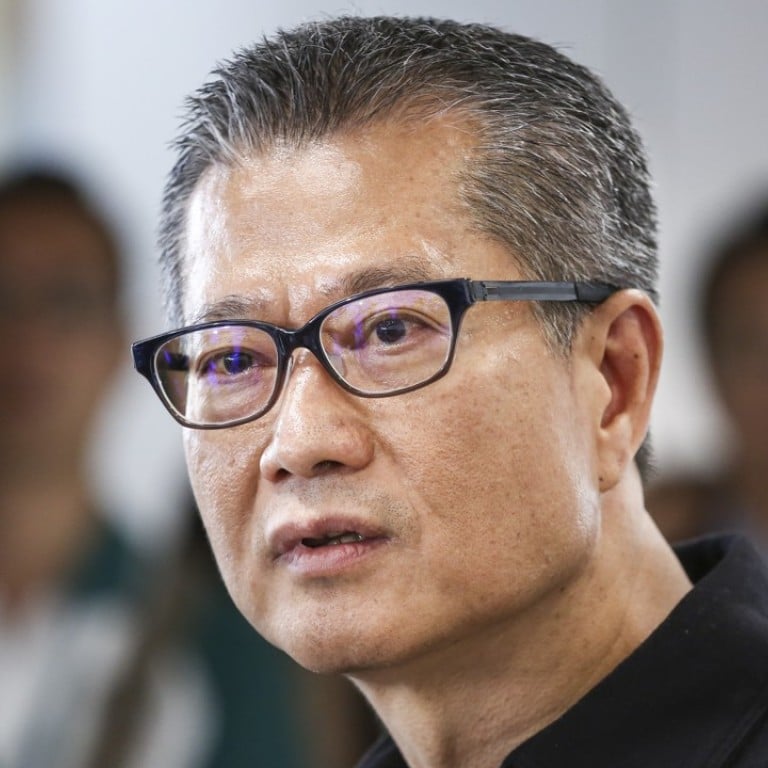
Hong Kong should jail those who abuse first-time flat buyer entitlements
Hong Kong Financial Secretary Paul Chan Mo-po recently reminded everyone in his blog that it is a criminal offence to split residential property purchases by using other people’s entitlements or to let others use one’s own first-time buyer entitlement, through private arrangements, to work around the new stamp duty policy of restricting multiple flat purchases by a single buyer.
Once convicted, in addition to having to pay back the difference, one would also be subject to a fine of as much as 10 times that amount and even imprisonment. Chan warned and emphasised that the Financial Services Bureau and the Inland Revenue Department would investigate thoroughly and prosecute people who made false declarations.
As property prices, in particular for residential flats, have skyrocketed, some parents endeavoured to use their children’s names to buy properties for investment or self-occupation, to take advantage of the youngster’s lower tax burden as a first time buyer. They were possibly encouraged by some media hype that this could simply be regarded as an act of “parental support to the children”.
Perhaps these parents may not be concerned about the likely risks arising from things such as the mortgage loans, rental leasing, resale transactions etc, and while family disputes may not necessarily arise, one could likely be held liable for making misrepresentations.
In the past, buyers of luxury apartments were covered as their purchases were made in the name of companies. However, recently a lot of transactions were made by individual “first-time buyers” who avoided payment of the 15 per cent stamp duty by using other people’s entitlements through private arrangements.
The cumulative “savings” in taxes can be phenomenal. Such workaround dealings could even be used by various criminal syndicates for money laundering. We should not take the possibility lightly.
The government should clamp down even more rigorously on non-local people using Hong Kong people’s entitlements in such dealings, since it is clearly against and would mitigate the effectiveness of the “Hong Kong property for Hong Kong people” policy and the “strong measures” to suppress demands to accord priority to Hong Kong people’s home buying.
The Inland Revenue Department should take heed of recent media reports that some people admitted they have let others use their entitlement for buying properties. Law enforcement actions are essential for policies to have any deterrent effect.
As Chan pointed out, there have been precedent and convicted cases of misrepresentations in the New Territories small houses’ transactions. He has therefore instructed the Financial Services Bureau and the Inland Revenue Department to investigate thoroughly and take prosecution actions accordingly against people who committed such offences (including abetting and conspiracy in making false statements).
Separately, the Inland Revenue Department of Taiwan has also initiated investigations and there were cases in which the convicted were fined severely. Last year, in the Taipei New City there was a case where a purchaser used the names of his daughter and niece to purchase two houses under compulsory auction (i.e. auction made by the court after confiscation to cover bad debts), and the houses were resold just 18 days after purchase.
Speculators are clearly undermining the government’s efforts in moderating the housing market.
The defendant had to pay back the 15 per cent tax that was avoided and was also fined 2.5 times that amount for “working around” and tax evasion. A proactive administration actually “walks its talk”. In order to be sufficiently deterring, the level of penalty for breach of the related rules and regulations should render the evaded tax much less than the potential fine, and should also invoke sentence for imprisonment. HKSAR government policy in tackling the overheated property market has to be comprehensive.
Using other people’s entitlement by private arrangements to purchase a flat is not only illegal and a criminal offence, it also affects the supply of and demand for housing because genuine first time buyers would be compromised by the large number of illegitimate competitors, as well as resulting in unhealthy development of the property market.
Speculators are clearly undermining the government’s efforts in moderating the housing market. Relevant departments therefore must act vigorously to support Paul Chan’s directive on law enforcement in order to cool down the overheated property market.
Tony Tse is founder of Hong Kong Seek Road

